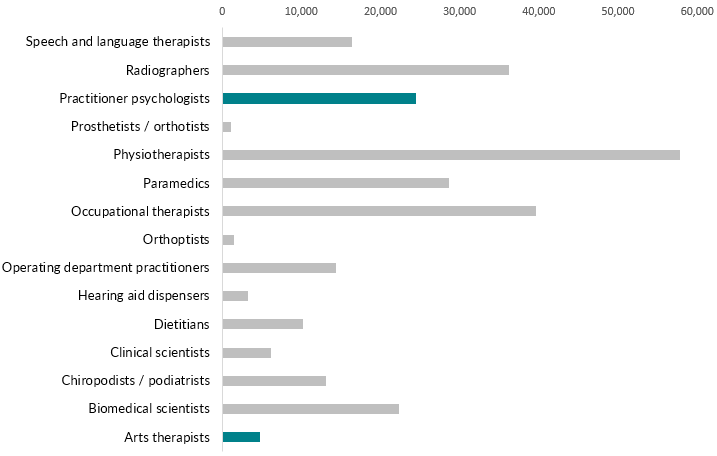The recent BBC investigation ‘Can anyone call themself a therapist or a counsellor’ brought into sharp focus the acute need for access to appropriately trained, highly skilled and competent practitioners at a time when the demand for mental health support has never been greater. Responding to discussions among our registrants, here’s some background on why some titles are regulated and others not.
According to recent statistics, approximately one in four people in the UK will experience a mental health issue each year. So, where do people go to if they need help?
For many people, the starting point may be a visit to their GP, but for those seeking help privately there is a mind boggling array of information on the web. How could you know whether the practitioners you locate through your search have the right training, professional skills and knowledge?
Regulating professionals to protect the public
Statutory regulation plays a vital role in this jigsaw puzzle, ensuring the right people with the right professional skills are safe to practise and continue to be fit to practise throughout their career. It isn’t often that things go wrong, but when they do statutory regulators of health and care professionals can and do take action.
Crucially, for those people who need mental health support, the HCPC has over 29,000 practitioner psychologists and arts therapists on our Register (data correct at December 2019).

These highly skilled professionals play a vital role in helping and supporting people, for example, coping with bereavement, dealing with trauma, preventing and overcoming depression. Practioner psychologists are also skilled in working with complex issues such as multiple bereavements, multiple mental health diagnoses and personality disorders.
Should more professions be regulated?
The answer to the question posed in the BBC’s podcast, can anyone call themselves a counsellor or psychotherapist, is yes. But why is that? In this country, the professions we, and others, regulate have one or more designated titles that are protected by law and professionals must be registered to use them.
Where there is evidence that service users are at risk of harm, we would always advocate extending statutory regulation to further groups of professionals. By doing so, we can ensure those treating and caring for them are safe and effective to do so.

But, understandably, it is not for regulators to determine which professions should be regulated; this decision rests with the UK Government and is based on the level of potential for harm or risk to patient safety.
This has been evidenced in the psychology profession; when statutory regulation was first considered, the Government decided that only the current titles should be regulated following public consultation. The rationale was that significant numbers of ‘psychologists’, like academic researchers or teachers, who do not work with clients, posed no safety risk to the public, and if the title was protected it would prevent these individuals, who have a legitimate claim to that title, from using it.
Are there alternatives to statutory regulation?
Currently, the Government’s preference, as set out in Enabling Excellence, is for voluntary registration, which means statutory regulation will only be considered where there is a ‘compelling case’ on the basis of public safety.
Voluntary registers are not regulated by law in the same way statutory registers are although the Professional Standards Authority has taken steps to provide a level of assurance by accrediting some of these registers. Many of the counsellor and psychotherapy registers held by the professional bodies are accredited in this way.
Awareness and understanding of statutory regulation and the voluntary registers needs to be improved to help the public navigate the complexity, particularly online. Regulators, employers, professional bodies and professionals themselves working together can all help to educate and inform.
Or, do more titles need to be regulated?
Making the case to Government to statutory regulate more professions is another avenue. Government has demonstrated it will listen; as evidenced by their recent decisions on statutory regulation for nursing associates and physicians associates.
This is a role that the professional bodies are particularly well equipped to undertake. The British Psychological Society, for example, is calling in their manifesto for Government to strengthen regulation to protect more psychology titles, as is the Society of Radiographers’ through their campaign to extend professional regulation to sonographers.
If the Government decides there is a case, the HCPC is ready to respond. As a multi-professional regulator, we have extensive experience of regulating diverse professions whilst taking account of the individuality of each, and our regulatory systems can accommodate further professions quickly and efficiently, delivering benefits to the public and professionals alike.

